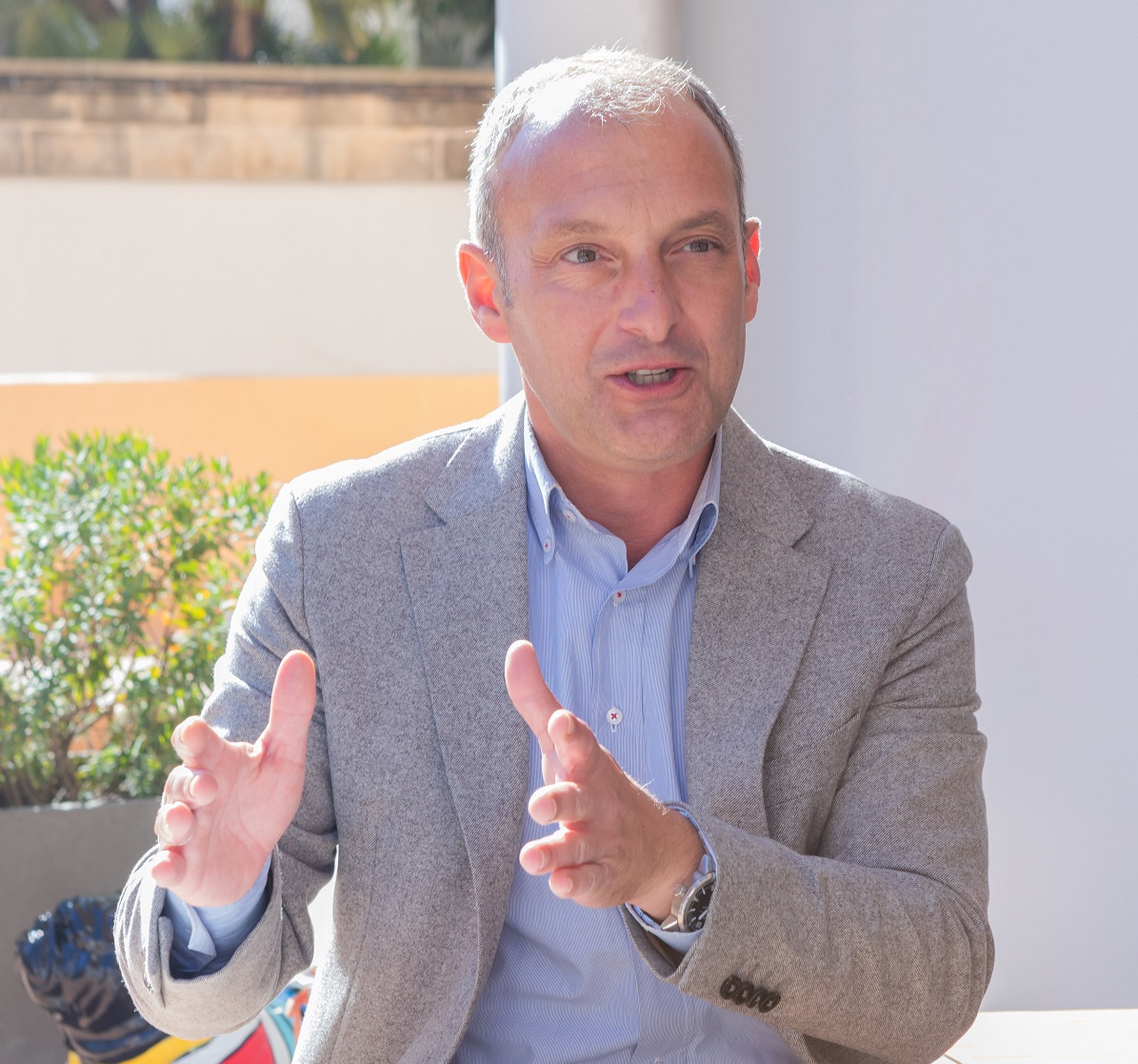
Engel & Völkers Southwest Mallorca director, during the interview. Photo: Pep Caparrós.
Son of a Majorcan mother and German father, and with 15 years of experience in the real estate sector, Hans Lenz corroborates the fact that society has evolved and the city planning has remained stagnant.
Text: V.S.
Engel & Völkers does not only operate in the most wealthy districts. What can you tell us about the Nou Levant Project?
In the Nou Levant district a very interesting decentralized city project is being developed to create a 15minute city from which one will be able to access any service within this timeframe, whether it’s a university, an innovation centre, a museum, the workplace, one’s home, or other.
Does COVID-19 have anything to do with this new mobility concept?
Lockdown has made us reconsider these aspects of mobility, however the project itself is prior. Even for Parc Bit, they originally had this same concept in mind, but they finally didn’t include homes in the project because they decided that it was a mired urban project.
Is this an experimental project?
It’s a mix of many things. On the one hand, it’s a district which is recovering from the degradation of the past. On the other hand, we have companies, like the Congress Centre, which have radically changed the appearance of the area. Now a series of property projects are being developed targeting a market, 70% local and 30% international.
So, Engel & Volkers also offer solutions to the local buyers?
Of course. At Engel & Volkers we have spent many years diversifying so that people can find all sorts of options in any kind of property. We hope to succeed in integrating more every day in the entrepreneurial and social network of the island.
In Nou Levant, a project for a15 minute city is being developed
What’s the current property rental and purchasing situation in the Balearics?
The market of property rental and purchasing in the Balearic Islands is currently circa four billion euros a year, which is divided 60% in national buyers and 40% international, taking into account the value of the operations. This year began strong but it was abruptly interrupted due to the pandemic. The first six months the number of transactions decreased in 36% and the value in 22%. What’s interesting is that the average price of what’s being sold has increased in 22%.
Can we therefore confirm that the luxury sector is evading the crisis?
It’s obvious. What’s alarming is that a lot of energy is being put into developing luxury homes but it is not possible to dedicate the same effort to create affordable housing because the conditions are not met. There is no ground, the urban parameters fall back 40 or 50 years and are not adapted to the current housing models, where every day there are less people living in the same home. It is expected that in the next few years the amount of houses where one only person will be living will increase in 20%, but promoters aren’t allowed to build 40m2 flats.
Who has bought a house throughout these first six months of the year?
48% of people who have bought a house are German and 18% are English. We have noticed a rush of people looking to better their personal situation; many wanted to ensure the best choice for them in case there was another lockdown. Confinement has led us to consider many factors such as the kind of home we want. Furthermore, the safety factor is considered, also sanitary. In the islands, together with a marvellous environment, it all comes together.
Do you think that the pandemic will have an impact in the value of the properties?
It already has. The prices of secondary residences haven’t shifted whatsoever, they are at the same price they were last year. However, within the local market, they are having to be adjusted. How far will this go, who knows?
The average price of what’s being sold has increased in 22% in the first semester
What about the market for rental properties?

Hans Lenz, at Mallorca Global’s office. Photo: Pep Caparrós.
Prices are also being lowered in the rental sector. The problem is that they want to regulate them from Madrid and it has been extensively proven that this sort of intervention has nefarious consequences. To date, what has worked in other European countries is having a significant amount of public housing stock; I would imagine about 20% of the housing total.
Due to coronavirus, there has been a significant increase in online shopping. Has this also occurred in the real estate sector?
The lack of mobility has boosted digitalization to the point that television production sets are being used to project the future homes with an actual person answering questions and clarifying doubts of possible buyers, live. However, the truth is that not many people buy without having seen it personally first.
What is the biggest challenge for the property market in regards to the conservation of the environment?
It is certain that more ground needs to be demolished, but we cannot eradicate 50.000 homes during the worst economic crisis, because it will be the average worker that will be affected the most.
Buildings need to be greener. In 20 years we will see truly amazing buildings. Then, the hardest work will be adapting the old buildings, and this will generate an industry in itself. This could also be one of the solutions to help generate employment.

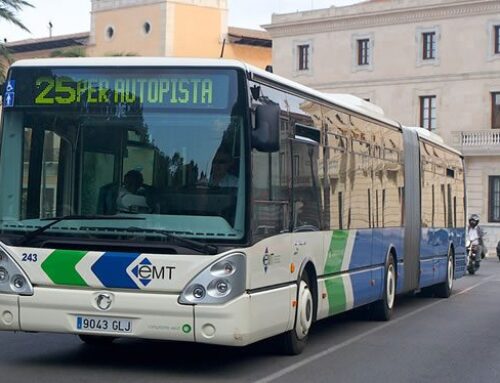
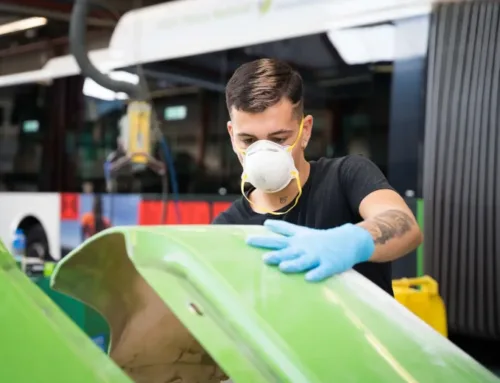
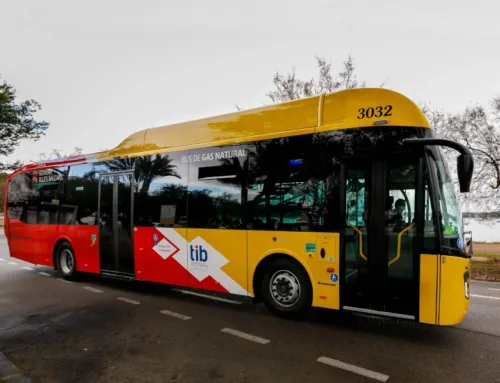
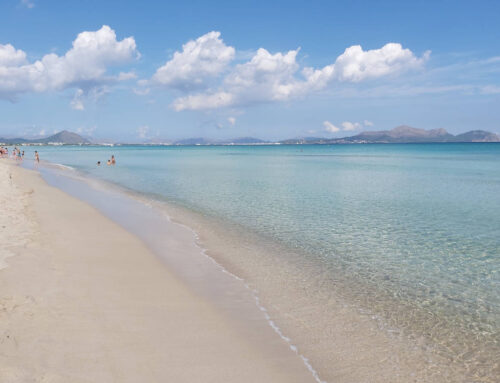
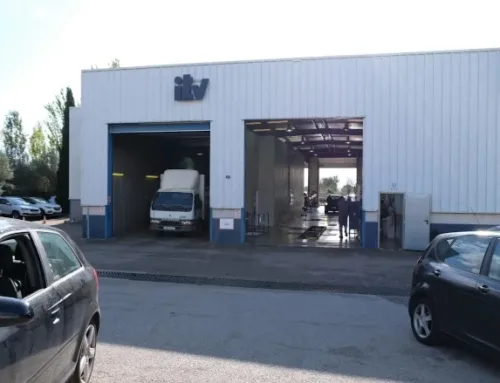

Leave A Comment